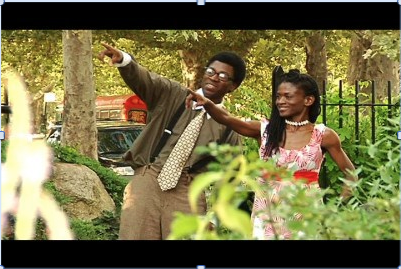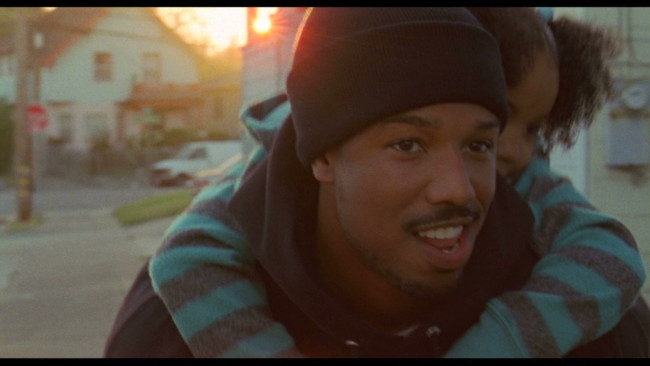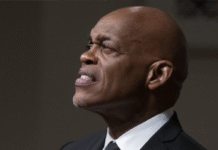With the Oscars right around the corner, many people are upset with the snubbing of films by black filmmakers by mainstream awards shows. Folks went slap off when filmmaker Ava DuVernay did not receive a best director nomination for her seminal film Selma. David Oyelowo, who delivered an incredible performance as Dr. Martin Luther King, Jr. in the same film was also overlooked by Oscar, despite the film being nominated for the Best Picture and Best Original Song categories. It definitely happens, but it is not often that a film is nominated for Best Picture with the film’s director and lead actor not receiving a nomination.
Lucky for many audiences and filmmakers of color, the film festival circuit exists. This is often one of the ways in which black films and films by disenfranchised populations get any visibility or for that matter, any love. Before DuVernay became a household name with the popularity of Selma, she became the first African-American woman to win best director at the 2012 Sundance Film Festival for Middle of Nowhere. The woman who is the first African-American woman to be nominated for a Best Director award at the 2015 Golden Globes, had already found acceptance and approval amongst cinephiles at film festivals throughout the world.
There are many opportunities for black filmmakers to showcase their talents whether at Sundance, Tribeca Film Festival, Pan African Film Festival or the Bronze Lens Festival, where the films and the cast and crew that make them, are given a platform for viewing, possibilities for distribution deals and the much needed exposure to get the next project funded or completed. Such was the case with Ryan Coogler, writer and director of the critically acclaimed film Fruitvale Station. Coogler won the 2011 ABFF HBO Short Film competition with his film ‘Fig’, earning him a $20,000 award and giving him the necessary exposure to continue moving forward in his film career. While many think of film festivals as party central, there are real differences being made in the lives of aspiring filmmakers and those persevering in an industry that is not always kind to people of color.
The value of film festivals is nothing new. A former publicist, DuVernay recognized the power of film festivals, founding the African American Film Festival Releasing Movement (AFFRM), an organization that uses film festivals to provide independent filmmakers with theatrical and multiplatform distribution. Upcoming film festivals include the Women of African Descent Film Festival (WADFF, May 2), American Black Film Festival (ABFF, June 11-14) and the Martha’s Vineyard African American Film Festival (MVAAFF, Aug. 10-15).

(Photo provided by WAFF)
Celebrating its 14th Anniversary, the Women of African Descent Film Festival (WADFF) was created to help combat the negative images of people of African descent constantly circulated in the media. Sponsored by the Brooklyn Chapter of The Links, the organization is committed to choosing and screening films that depict the positive linkages women of African descent have to their families, neighborhoods and communities, in an effort to influence peoples’ perceptions of people of African descent through the medium of film.

The American Black Film Festival (ABFF) is a four-day event dedicated to showcasing quality films and television content by and about people of African descent. The ABFF is committed to the belief that Black artists deserve the same opportunities as their mainstream counterparts. The Martha’s Vineyard African American Film Festival was founded to produce community events, educational programs and films that spark discussion, debate and action.
These festivals represent just a few of the opportunities that exist for black filmmakers to have their films seen by the public, embraced and awarded. If you’re a filmmaker, working or aspiring to be in the film business, then you might try submitting your work to these festivals or attending. Whatever you choose to do, know that mainstream awards shows and larger festivals do not validate the amazing work produced by black filmmakers. Instead of getting mad, get going to festivals that love, embrace and reward black filmmakers all year, every year.
For more information about submitting to the WADFF, click here. (Entry deadline: 3/13/15)
For more information about submitting to the ABFF, click here. (Entry deadline: 3/10/15)
For more information about submitting to the MVAAFF, click here. (Entry deadline: 5/30/15)
This post was written by Nsenga K. Burton, Ph.D., founder & editor-in-chief of the award-winning news site The Burton Wire. Follow her on Twitter @Ntellectual.
Like The Burton Wire on Facebook. Follow us on Twitter @TheBurtonWire.








